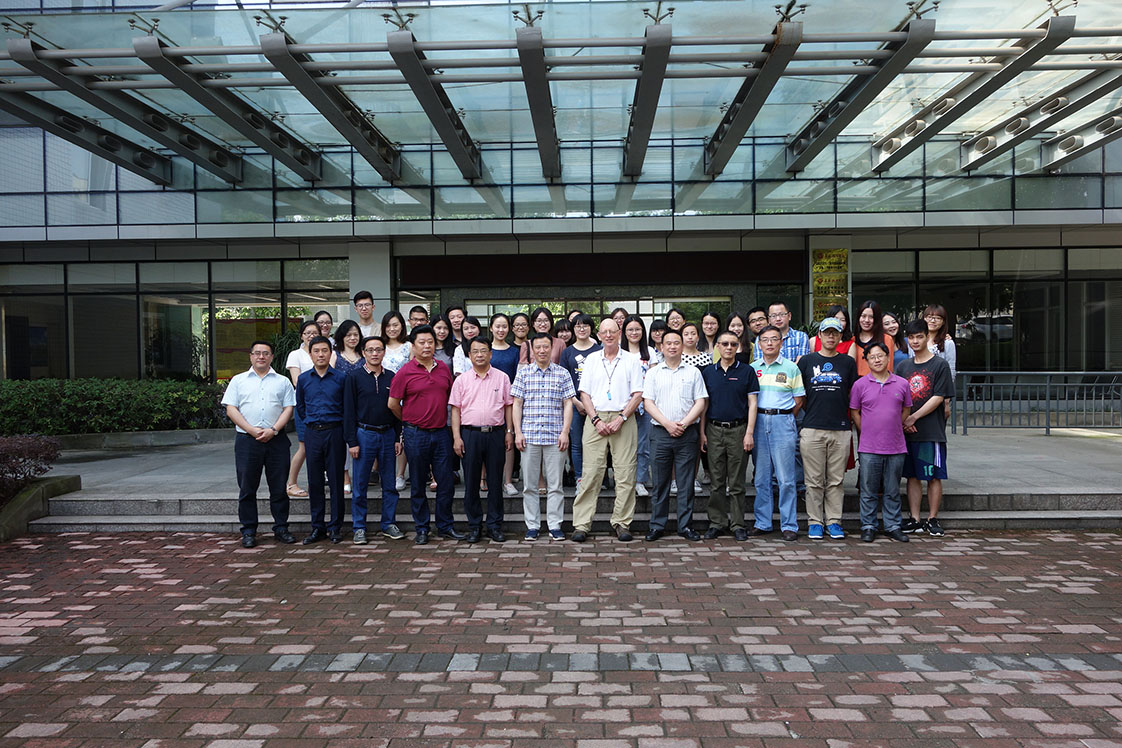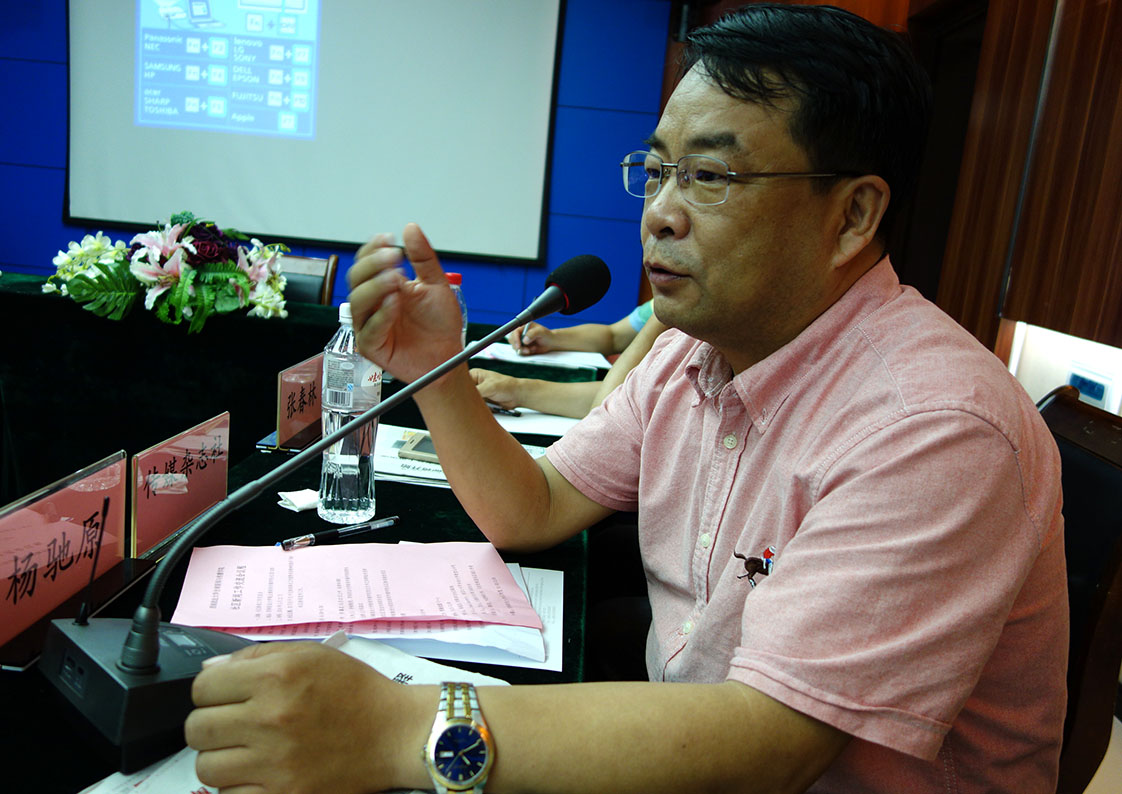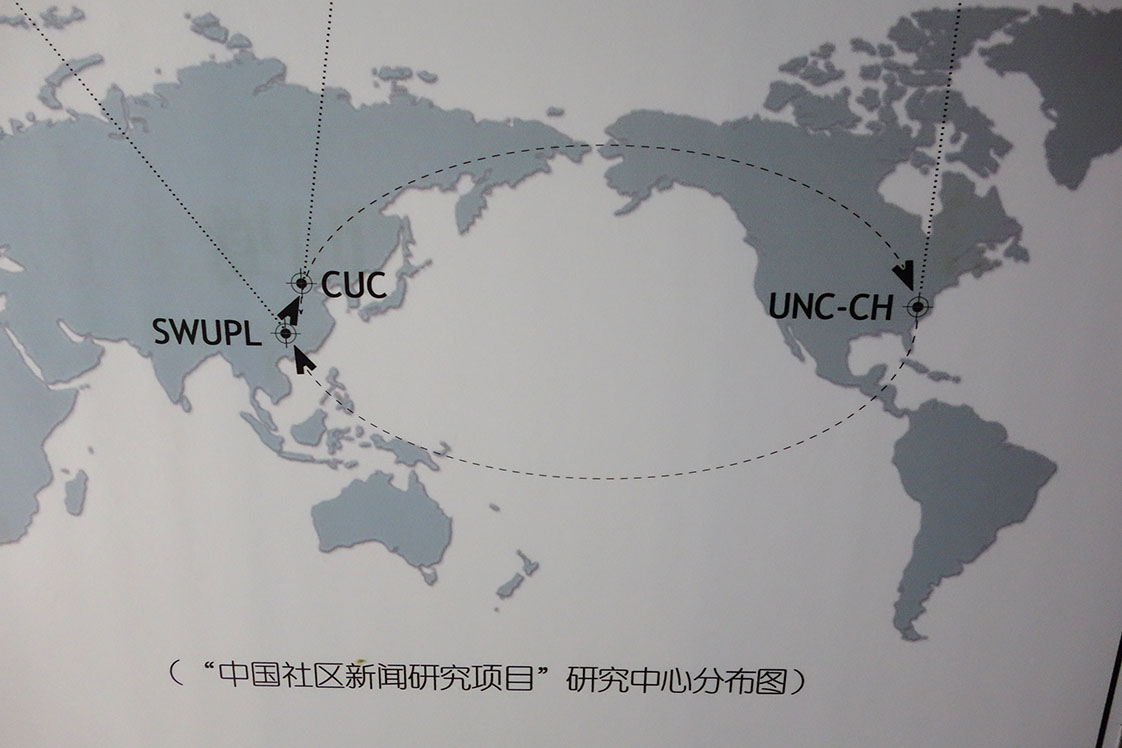
Senior Lecturer Jock Lauterer of UNC-CH is teaching Community Journalism in China this May. His report from a groundbreaking seminar held in Chongqing on Saturday, May 21, follows. This is his fifth teaching/research trip to China.
Chinese media leaders took a historic first step Saturday with the formation of a new national association to support the growth and development of community journalism here, pending university approval.
Meeting in Chongqing, newspaper representatives from Beijing, Shanghai, Guangzhou and Chengdu launched the Society for Chinese
Community Media, which will be headquartered at Southwest University of Political Science and Law, (SWUPL) and headed by Professor Li Ren, the assistant dean at the School of Global Journalism and Communication. Final university approval is expected.
“Since community journalism is new to everyone here, we need to build a team,” Prof. Li explained. And Li also noted the importance of community newspapers as the post-graduate training ground for future journalists on the national scene — a role he compared to that of “teaching hospitals,” where young interning doctors and nurses get experiential, real-life-and-death training.

The launch of the society was the highlight of the one-day seminar at SWUPL, titled, “Learning from the Important Thoughts of Xi Jinping on News and Public Opinion to Promote the Community Newspaper Industry.”
The lead-off speaker, Yang Chi Yuan, influential editor of Media magazine of Beijing, spoke forcefully and convincingly about the need for, and the importance of community journalism — and especially community newspapers — in China.
“Community media has a bright future in China, and should be the leader for change,” he told the gathering, which also included about 30 journalism students from the university. “We need to combine new media with the old, as we step into a new age of community journalism, which is part of the reform of the mass media.”
Addressing the issue of government’s relationship to the media, Yang urged local governmental leaders to embrace the new media form as constructive. “We need community journalism to bring about the harmonious community, as a bridge between the community and the (government) leaders,” he insisted.
Speaking to new media age, Yang observed, “The Chinese media are talking about transformation, and a lot of people think the future is all digital and online only, but I think you should go down into the community first, and get rooted in the community.” And he noted that newspapers that had failed did so because “they were not rooted in the community.”
Yang, who has read extensively on the subject of community journalism and traveled all over China studying community newspapers, told the gathering that community newspapers are “practical and profitable – and absolutely it’s print!”
In addition to the emphasis on print, the new association will also focus on conducting research into the thorny issue of how to monetize digital – and especially mobile — where everyone seemed to agree the future of media is heading.
Innovation and diversification are key to survival, insisted Associate Professor Chen Kai of Beijing’s Communication University of China, (CUC) and author of the groundbreaking book, “Introduction to Community Newspapers in the U.S.”
She highlighted the work of the 28 new Beijing Youth Daily community newspapers which have successfully piloted a multi-pronged business plan that includes a package of print, digital, special events and the establishment of 112 multi-functional community centers, called “stations,” which serve as mini-news and service bureaus all over the city.
Following the seminar, visiting speaker Li Guo Chen, publisher of 10 community newspapers in the Foshan-Guangzhou area, said he thought the creation of the new community media center was “a good thing, because there are a lot of questions about communities in China – and it will take passion and courage to ask the tough questions and to seek the long-range answers.”
Editor Li, whose new book, “How We Publish a Community Newspaper in Foshan,” is slated for release later this summer, also noted that Chinese publishers “need to take the long view” and not expect to make big money right away. “We should concentrate instead on how to put out good community newspapers, and how to develop long-term positive relationships with readers.”
“Maybe I like the Warren Buffett notion of long-term investment and not seeking to make a fast buck,” he concluded.
The new community media association is the outgrowth of a five-year international collaboration between Professor Li Ren of SWUPL, Professor Chen Kai, of CUC, and Senior Lecturer Jock Lauterer of University of North Carolina at Chapel Hill — the latter of whom also addressed the seminar.


